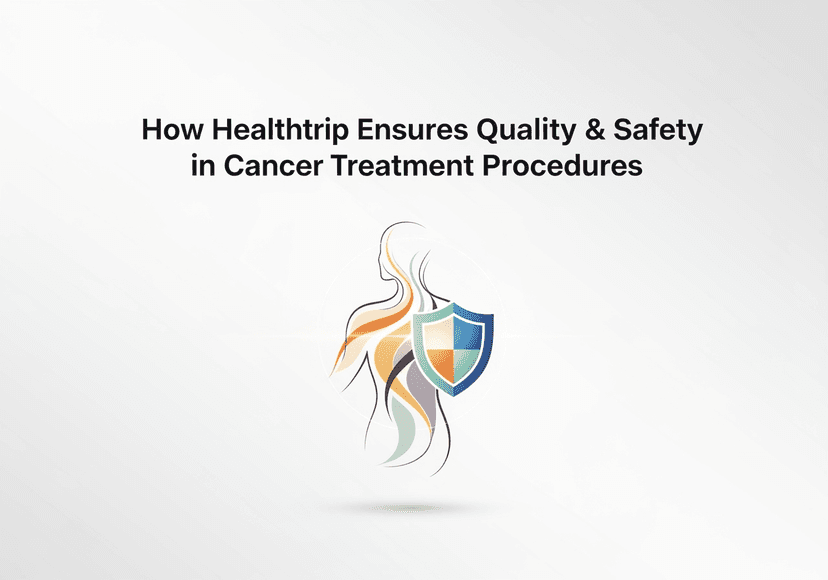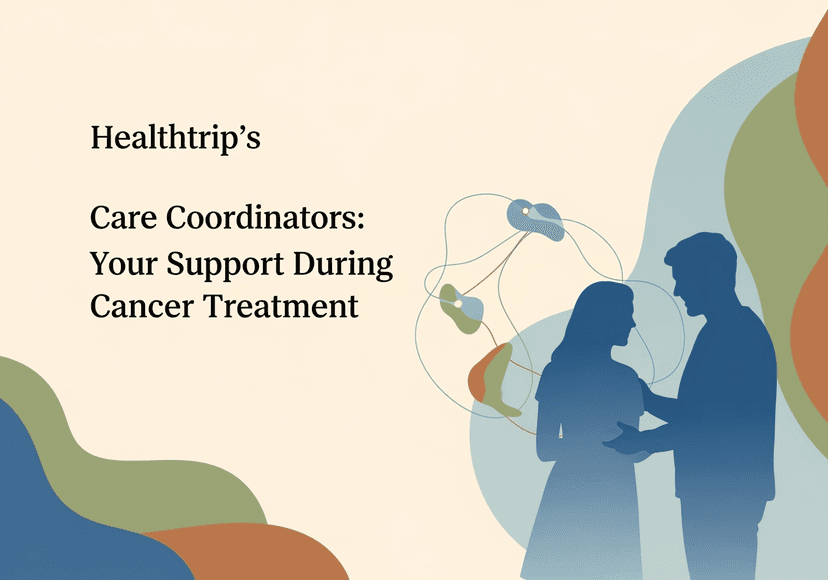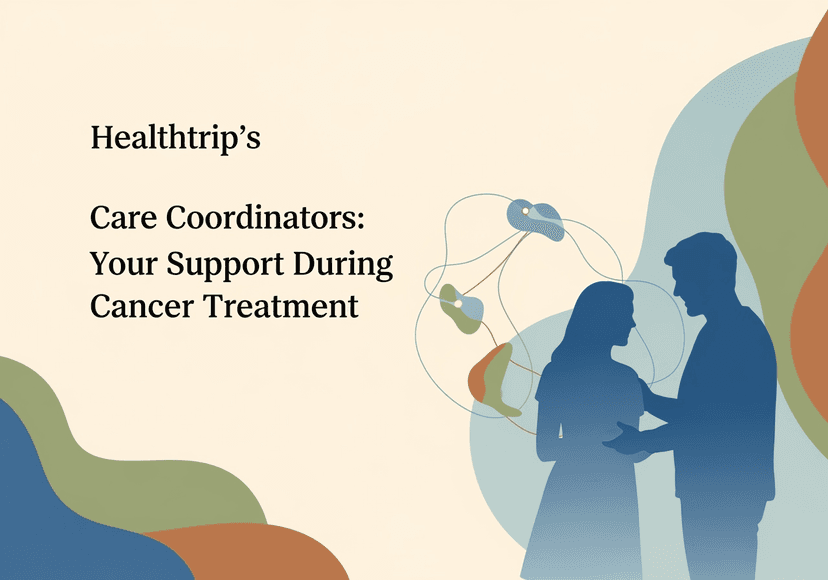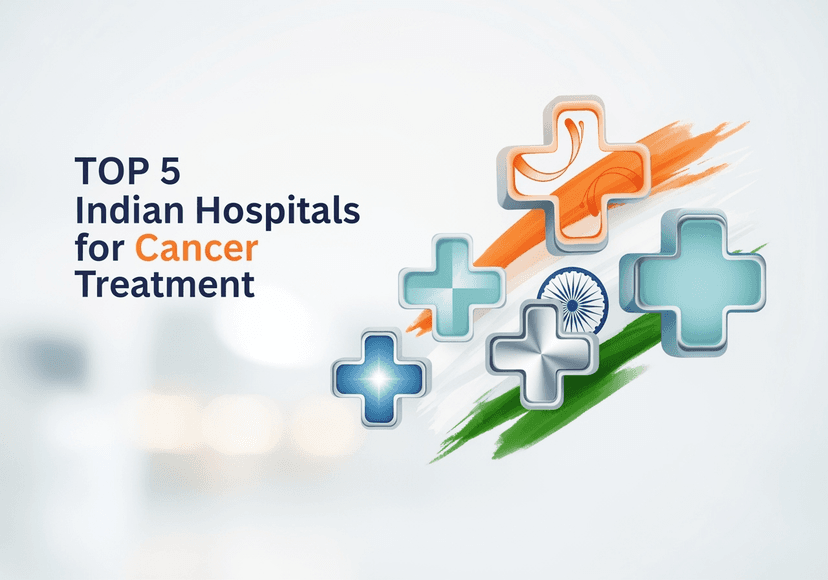
Considering Alternative Therapies for Vaginal Cancer? Weighing the Pros and Cons
20 Nov, 2023
 Healthtrip Team
Healthtrip TeamVaginal cancer, a relatively uncommon but complex condition, predominantly affects women, often necessitating a diverse approach to treatment. Conventional methods such as surgery, radiation, and chemotherapy form the foundation of its management. Nevertheless, driven by motives ranging from the desire for symptom alleviation to enhancing overall well-being, a number of women consider alternative therapies. This discussion aims to thoroughly examine the advantages and disadvantages of these alternative treatments, providing an even-handed viewpoint for those contemplating this option.
Most popular procedures in India
Standard Treatment Modalities
The cornerstone of managing vaginal cancer lies in conventional medical treatments. These typically include:
- Surgical Intervention: Surgical procedures are often the first line of defense, involving the removal of cancerous tissues from the vagina. The extent and nature of the surgery depend on the cancer's stage and location.
- Radiation Therapy: Often used either post-surgery or as a standalone treatment, radiation therapy involves targeting the affected area with high-energy rays to destroy cancer cells.
- Chemotherapy: This treatment uses powerful drugs to kill cancer cells or stop them from growing and is often used in conjunction with other treatments.
Each of these conventional treatment methods carries its own set of side effects and challenges. For instance, surgery can lead to complications like infection or scarring, radiation therapy may cause fatigue and skin irritation, and chemotherapy is known for side effects like nausea, hair loss, and increased vulnerability to infections.
Wellness Treatments
Give yourself the time to relax
Lowest Prices Guaranteed!

Lowest Prices Guaranteed!
The Turn Toward Alternative Therapies
In light of these challenges, along with the desire for holistic wellness and symptom alleviation, a significant number of patients are turning towards alternative therapies. These therapies are sought for various reasons:
- Seeking Relief from Side Effects: Patients often look for ways to alleviate the distressing side effects of conventional treatments.
- Enhancing Overall Well-being: Beyond physical health, there is a growing emphasis on the emotional and spiritual aspects of healing.
- Personal Beliefs and Preferences: Some patients prefer natural or less invasive methods of treatment, aligning with their personal beliefs and lifestyle choices.
Alternative therapies encompass a wide range of treatments and practices. These may include:
- Acupuncture: Often used for pain relief and managing side effects like nausea.
- Herbal Medicine: Herbal supplements and teas are sought for their supposed healing properties and to boost overall health.
- Yoga and Meditation: These practices are aimed at enhancing mental well-being, reducing stress, and improving physical fitness and flexibility.
- Dietary Modifications: Nutritional changes are made with the belief that certain foods can boost health and potentially fight cancer.
Pros of Alternative Therapies
1. Enhanced Overall Well-being:
- Holistic Approach: Alternative therapies often focus on treating the whole person, not just the disease. This holistic approach can improve general well-being, addressing not just physical symptoms but also emotional, mental, and spiritual health.
- Quality of Life: Many alternative treatments aim to enhance the quality of life. Practices like yoga, meditation, or Tai Chi can improve physical strength, flexibility, and mental resilience, which might be particularly beneficial during the exhaustive process of cancer treatment.
2. Alleviation of Treatment Side Effects:
- Pain Management: Techniques like acupuncture, massage therapy, or certain herbal remedies can help manage pain and discomfort, which are common side effects of cancer treatments.
- Reducing Nausea and Fatigue: Certain therapies, including ginger supplements, acupuncture, and specific dietary changes, have shown promise in reducing nausea and fatigue associated with chemotherapy and radiation therapy.
3. Psychological and Emotional Support:
- Stress Reduction: Activities like meditation, yoga, and guided imagery can play a significant role in reducing stress and anxiety, which are common in cancer patients.
- Emotional Balance: The journey through cancer treatment can be emotionally taxing. Counseling, support groups, and practices like mindfulness can offer much-needed emotional support, helping patients cope with their diagnosis and treatment.
3. Patient Empowerment and Engagement:
- Sense of Control: By actively exploring and choosing alternative therapies, patients can regain a sense of control over their health journey, which can be empowering in a situation often characterized by uncertainty and dependency on medical professionals.
- Informed Decision-Making: Seeking out alternative treatments encourages patients to educate themselves, ask questions, and be more engaged in their health care decisions.
4. Complementarity to Conventional Treatments:
- Synergistic Effects: Some alternative therapies can complement conventional treatments, potentially enhancing their effectiveness or mitigating their side effects.
- Personalized Care: Integrating alternative therapies allows for a more personalized approach to cancer care, tailoring treatments to the individual's needs and preferences.
5. Encouragement of a Healthy Lifestyle:
- Diet and Nutrition: Many alternative therapies emphasize the importance of a healthy diet, which can play a crucial role in overall health and recovery.
- Physical Activity: Encouraging physical activity through practices like yoga or Tai Chi can aid in maintaining strength and endurance, important factors during cancer treatment and recovery.
6. Community and Social Support:
- Building Support Networks: Participating in group activities like yoga classes or support groups can help build a community of support, crucial for emotional and psychological well-being.
- Sharing Experiences: Interaction with others who are going through similar experiences can provide comfort and understanding, which is invaluable during the treatment journey.
While alternative therapies are not substitutes for conventional cancer treatments, they offer significant benefits that can enhance overall well-being, alleviate treatment side effects, provide psychological and emotional support, empower patients, and encourage a healthy lifestyle. It's essential, however, for patients to discuss these options with their healthcare providers to ensure they are safe and complementary to their medical treatments.
Cons of Alternative Therapies
The cons of alternative therapies is crucial, especially for individuals considering these treatments for serious conditions like cancer. Here are the key drawbacks and risks associated with alternative therapies:
1. Lack of Scientific Validation
- Unproven Efficacy: Many alternative therapies have not undergone rigorous clinical trials to prove their effectiveness, especially in treating or curing cancer. This lack of scientific evidence can make it difficult to gauge their true therapeutic value.
- Inconsistent Quality and Regulation: Unlike conventional medicines, many alternative therapies are not regulated uniformly. This can lead to variations in quality and potency, potentially affecting their safety and effectiveness.
2. Potential Risks and Side Effects
- Adverse Reactions: Some alternative treatments, especially herbal remedies and supplements, can cause adverse reactions, including allergies, toxicity, or interactions with other medications.
- Physical Harm: Certain practices, if not performed correctly or by qualified practitioners, can lead to physical harm. For example, improperly administered acupuncture can cause injuries.
3. Interaction with Conventional Treatments
- Reduced Efficacy of Standard Treatments: Some alternative therapies might interfere with the effectiveness of conventional cancer treatments. For instance, certain supplements may reduce the effectiveness of chemotherapy or radiation therapy.
- Delay in Receiving Proven Treatments: Relying heavily on alternative therapies can sometimes lead to delays in seeking or continuing effective conventional treatments, potentially impacting the overall outcome and prognosis.
4. Financial Implications
- Cost: Many alternative therapies are not covered by health insurance, leading to significant out-of-pocket expenses.
- Value for Money: Given the uncertainty about the effectiveness of some therapies, patients may be investing in treatments with little to no proven benefit.
5. Psychological Impact
- False Hope: Some alternative treatments are promoted with exaggerated claims of effectiveness, which can give patients false hope about their potential to cure or significantly alter the course of a disease like cancer.
- Emotional Distress: Discovering that an alternative therapy is not effective, especially after investing time, hope, and resources, can lead to emotional distress and disappointment.
6. Ethical and Legal Concerns
- Misleading Claims: The promotion of unproven therapies with claims of curing cancer can be not only unethical but also legally questionable.
- Patient Safety: Prioritizing alternative treatments over proven conventional therapies raises concerns about patient safety and welfare.
While alternative therapies can offer benefits like symptom relief and improved quality of life, it is crucial to approach them with caution. Understanding their limitations, potential risks, and the importance of integrating them responsibly with conventional treatments is essential. Patients should always discuss the use of alternative therapies with their healthcare providers to ensure a safe and coordinated approach to their overall treatment plan.
Related Blogs

How Healthtrip Ensures Quality & Safety in Cancer Treatment Procedures
Detailed guide on cancer treatment, featuring doctors, hospitals, risks, recovery,

End-to-End Logistics for Cancer Treatment with Healthtrip's Support
Detailed guide on cancer treatment, featuring doctors, hospitals, risks, recovery,

Healthtrip's Care Coordinators: Your Support During Cancer Treatment
Detailed guide on cancer treatment, featuring doctors, hospitals, risks, recovery,

Healthtrip's Care Coordinators: Your Support During Cancer Treatment
Detailed guide on cancer treatment, featuring doctors, hospitals, risks, recovery,

Top 5 Indian Hospitals for Cancer Treatment
Detailed guide on cancer treatment, featuring doctors, hospitals, risks, recovery,

Post-Cancer Treatment Diet and Lifestyle Tips
Detailed guide on cancer treatment, featuring doctors, hospitals, risks, recovery,










